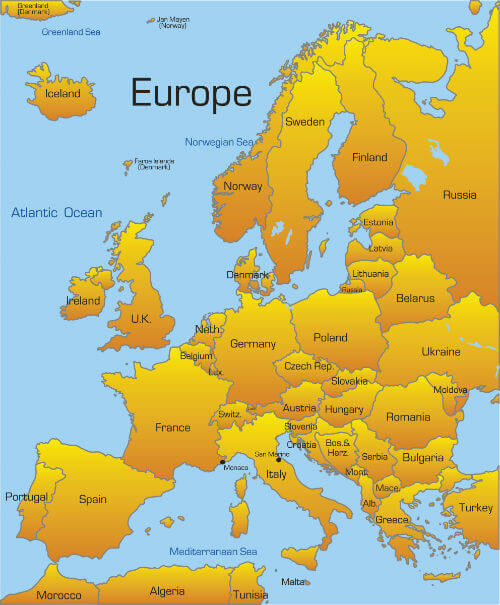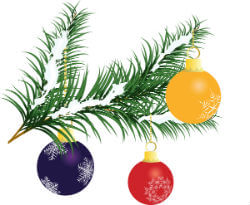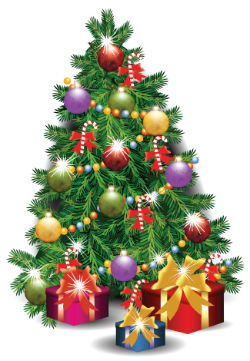English Reading Practice
Germany
Germany is a country in western Europe.

People have lived in the land that we now call Germany since before 100 AD. Today, although many people from many different countries and religions live in Germany, the dominant religion in Germany is Christianity. "Dominant" means strongest. Christianity arrived slowly in Germany but by 1100 AD, most people in Germany were Christian.
Many of the national holidays celebrated in Germany are Christian holidays. One of the most important holidays celebrated is Christmas. Christmas is celebrated for almost a month with many smaller holidays observed during that time. "Observed" means celebrated.
One of the most visible ways that the Germans celebrate Christmas is with their Christmas Markets.
Christmas Markets
Christmas markets are special events that take place during the four weeks leading up to Christmas. Each market is set up in a central square or location and has a number of different stalls. A "stall" is a little building from which items can be sold. The square and the stalls have many lights and often have music playing. It is a very festive atmosphere. "Festive" means happy.When at the Christmas market, people can just stroll along the stalls and look at what is for sale. "Stroll" means to walk slowly. They can drink hot wine that is made at the market and is a traditional drink there.
Often, people will buy some of the items as Christmas gifts for their family or friends. The stalls sell wooden toys, dolls, candles, and Christmas ornaments.


There are also stalls that sell special foods associated with Christmas like roasted chestnuts (a kind of nut) and special holiday cookies and cakes.
Some of the Christmas markets in Germany are very old and very well known. The Christmas market in Frankfurt is one of the oldest Christmas markets in the country. It is over 600 years old.
The Frankfurt Christmas market has over 200 stalls that sell many different kinds of toys, art, and food. There is a very large Christmas tree in the center of the market, which is held in one of the very traditional squares in the city. Throughout the Christmas season, many concerts are held at the market.

Another famous Christmas market in Germany is the one in Nuremberg. This market is well-known for its Children's Christmas market. In addition to the nearly 200 stalls at the market, there are also rides for the children. These rides include a carousel (a ride with horses that goes in a circle) and a train.
This is also one of the most traditional markets in Germany. Many of the stalls are made of wood and the goods sold at the market are all very classic and traditional. There are few modern items to buy.
Germany is a beautiful country with many interesting traditions. One of the most classic and fun to see in person, however, is the Christmas market. Nearly every town in Germany has a Christmas market. Some are big and some are small. All are worth visiting.
And now, practice:
Germany - Exercises
Vocabulary Questions
1. What does "observed" mean?a) celebrated
b) saw
c) thought about
d) ignored
b) saw
c) thought about
d) ignored
2. What does "festive" mean?
a) sad
b) happy
c) serious
d) relaxed
b) happy
c) serious
d) relaxed
3. What does "stroll" mean?
a) walk quickly
b) run
c) walk slowly
d) stay still
b) run
c) walk slowly
d) stay still
Grammar Questions
1. One of _________ most visible ways that _________ Germans celebrate
Christmas is with their Christmas Markets.a) a...a
b) the...a
c) a...the
d) the...the
b) the...a
c) a...the
d) the...the
2. The square and the stalls _________ many lights and often have music playing.
a) has
b) have
c) had
d) will have
b) have
c) had
d) will have
3. Some of the Christmas markets _________ Germany are very old and very well known.
a) in
b) at
c) on
d) of
b) at
c) on
d) of
Comprehension Questions
1. When are the Christmas markets held in Germany?_______________________________________________________________
2. What can you buy at the Christmas markets?
_______________________________________________________________
3. What is the Christmas market in Nuremburg well-known for?
_______________________________________________________________
Get Updates, Special Offers, and English Resources
Download your FREE GIFT (the first two chapters of
English Short Stories Book and Workbook)
as soon as you join!

By submitting your email, you consent to receiving updates and newsletters from us and to the sharing of your personal data with third parties for the purposes of sending you communications. We will not spam you. You can unsubscribe at any time. For more information, please see our privacy policy.




